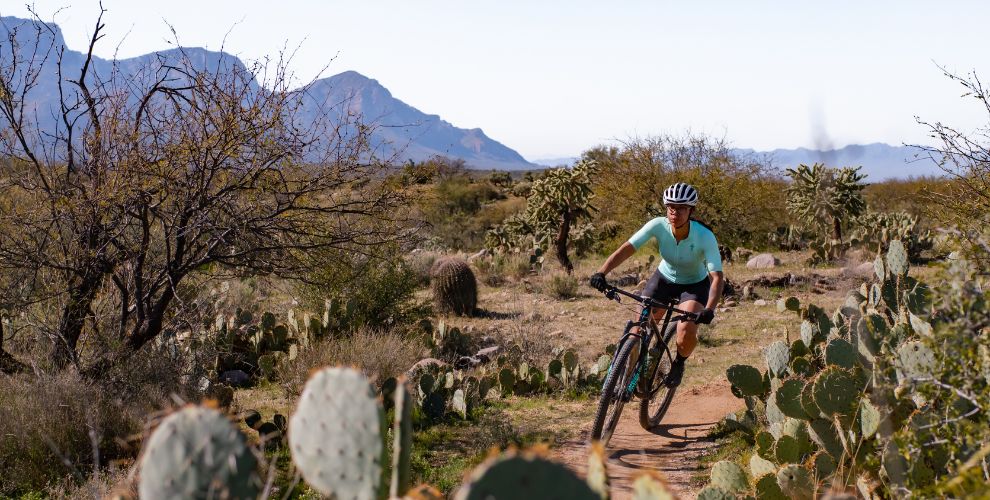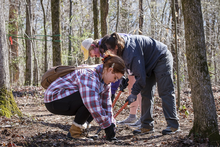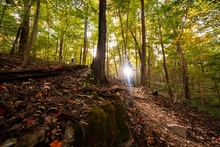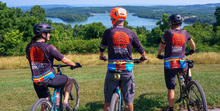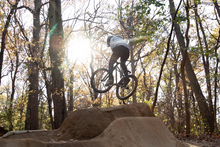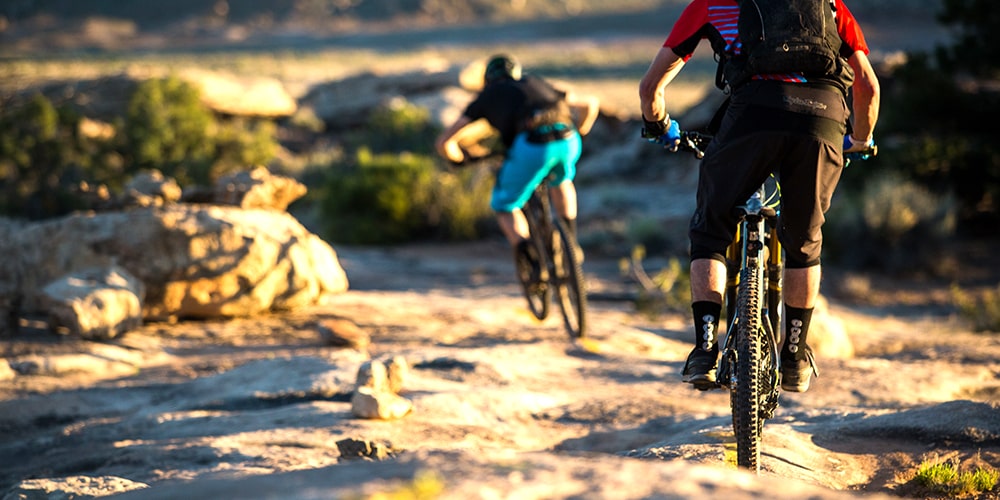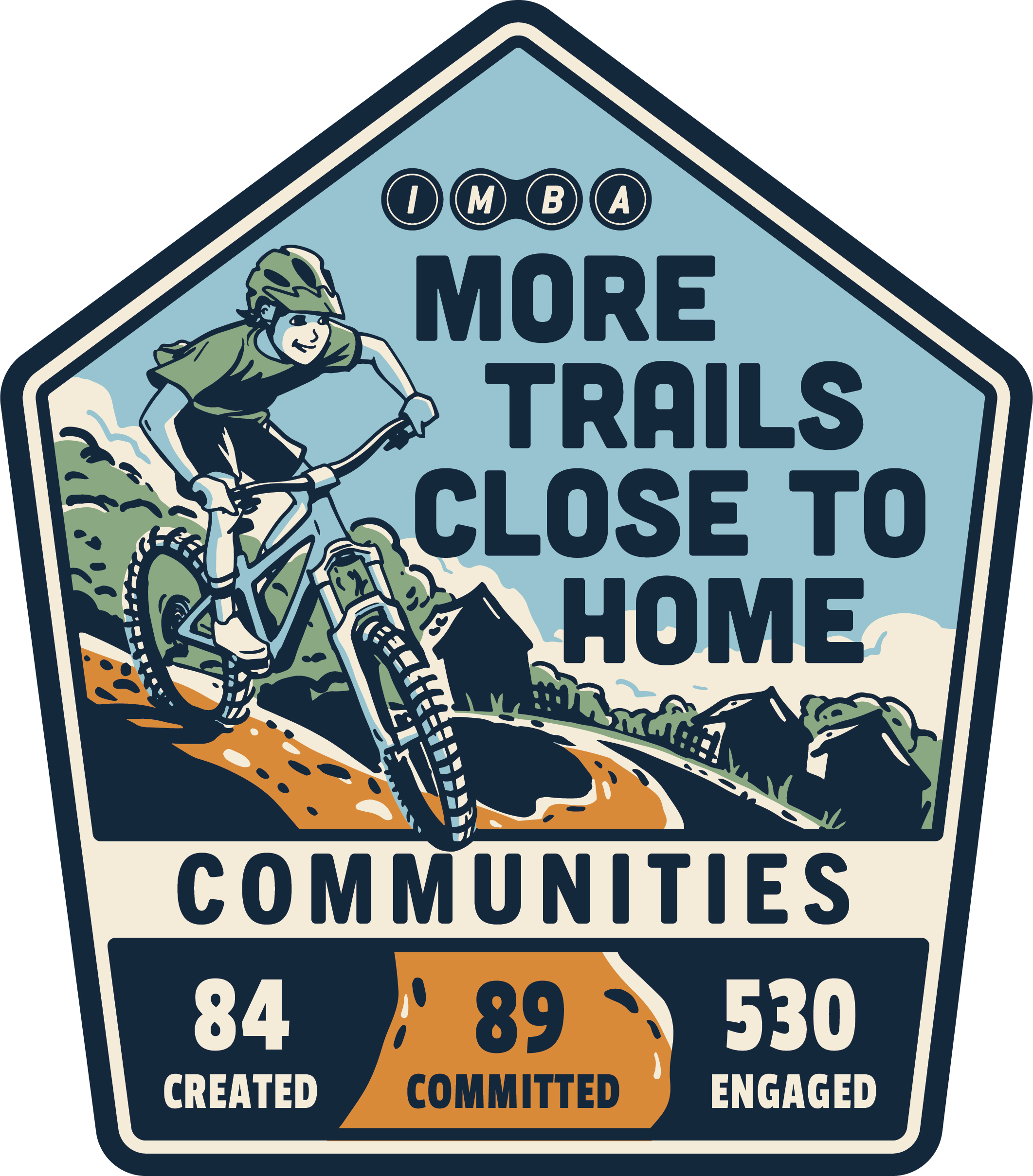Green Trails, Greenways, and an Ecosystem of Trails
In the late 19th century, as the modern day bicycle was gaining popularity in America, women were dissuaded from riding bikes. Doctors coined the term bicycle face, a medical condition that would afflict women if they chose to pedal. Some doctors even went as far as saying the condition was permanent and irreversible.
Below is a description of bicycle face in an 1895 issue of Literary Digest.
Over-exertion, the upright position on the wheel, and the unconscious effort to maintain one's balance tend to produce a wearied and exhausted bicycle face, usually flushed, but sometimes pale, often with lips more or less drawn, and the beginning of dark shadows under the eyes, and always with an expression of weariness.
The condition obviously turned out to be a farce, and women did not suffer from incurable bicycle face. Instead, they put a new face on bicycling, leading social changes on two wheels and becoming a powerful force in mountain biking and trail advocacy.
From mode of transportation to freedom machine
It was already socially acceptable for men to get from one place to another on their own in the 1890’s. For women, on the other hand, the bicycle presented a new opportunity for mobility and independence. For the first time, women could come and go as they pleased without having to depend on a man for transportation. The bicycle provided women a new kind of parity. In A Social History of the Bicycle, author Robert Smith writes, “Women came to regard the cycle as a freedom machine.”
Sharing the joys of this freedom machine, improving skills in a supportive environment, and getting more women on mountain bikes are top reasons for many of our IMBA Local partners who put on women’s rides and clinics.
A vehicle for dress reform
One could not expect women to comfortably (or safely) bike in Victorian era garments. Women on bicycles accelerated the much-needed dress reform movement. Tight-laced corsets, long skirts, and petticoats made way for bloomers and less restrictive tops which allowed women to more comfortably engage in physical activity. Companies capitalized on the increase in female cyclists, producing bicycle suits, comfort saddles, and ball-bearing boots.
Today nearly every cycling company has a dedicated women’s apparel line, from the biggest brands, to IMBA’s generous corporate partners, to companies for women, by women, like Shredly, Wild Rye, Machines for Freedom, Revel Rider, and Untamed, a woman-owned mountain bike apparel brand giving back 10% of all its sales to support trail building organizations.

Riding for rights
The first wave of the women’s rights movement was already happening in America when the modern day bicycle hit the streets. In many ways, this two-wheeled machine symbolized the aspirations of the New Woman, a term used to describe feminist, educated, physically active, career women in the late 19th century.
Spending time outside made women more aware of the political climate and gender inequalities. As women on bikes gathered freely without male chaperones, they also organized and fought for women’s rights.Women’s rights activist Susan B. Anthony once said about bicycling, “I think it has done more to emancipate women than anything else in the world. It gives women a feeling of freedom and self-reliance. I stand and rejoice every time I see a woman ride by on a wheel—the picture of free, untrammeled womanhood.”
Today women have a strong presence in mountain bike advocacy, grassroots activism, and volunteerism, leading IMBA Local organizations, getting people on bikes, and improving the lives of communities by getting more access to trails.
Women’s MTB Day: a celebration, acknowledgement, and invitation
International Women’s Mountain Bike Day is a celebration, an opportunity for women/trans/femme (WTF) riders to gather, experience, and share their stoke for mountain biking.
A day dedicated to women enjoying mountain biking was dreamed up by Andree Sanders during the 2018 UPRISING event, IMBA’s first-ever women’s conference. Colorado Governor John Hickenlooper later issued an official proclamation declaring May 5, 2018 as Women’s Mountain Biking Day. Today, women around the world celebrate the first Saturday of May as International Women’s Mountain Biking Day.
Women’s MTB Day is an acknowledgement of the barriers to entry into mountain biking that existed and continue to exist for women today.
Mountain biking is a male-dominated sport, and there have been historically higher barriers to entry into mountain biking for women. Bicycle face is a prime example. Barriers are in media’s portrayal of a mountain biker as an able-bodied man. It’s in a culture that allows offensive and sexist trail names to exist. Bikes, gear, and apparel were first designed for the male body—it took a long time for companies to take into account anatomical differences that affect how women ride. It takes a concerted effort to break down decades-old barriers. Women’s MTB Day aims to highlight WTF participation and make mountain biking more welcoming and inclusive.
Women’s MTB Day is an invitation for everyone to listen and learn from the intersectional experiences of WTF mountain bikers.
Women are not a homogenous group, and many aspects of identity such as race, culture and class can all play into mountain biking and trail access. The more we listen and learn, the better we can support all riders and riders to be.
The goal is not to get every woman on a mountain bike (one can dream, right?). Instead, the goal is for women to know they can ride, because they will feel welcome and supported when they do.
Celebrate, listen, and learn with us on May 7, and be sure to check out our Women’s MTB Day resources. Whether you are doing a ride, day of service, or social gathering, tag IMBA on social media and use the hashtag #WomensMTBDay to connect with other groups.
